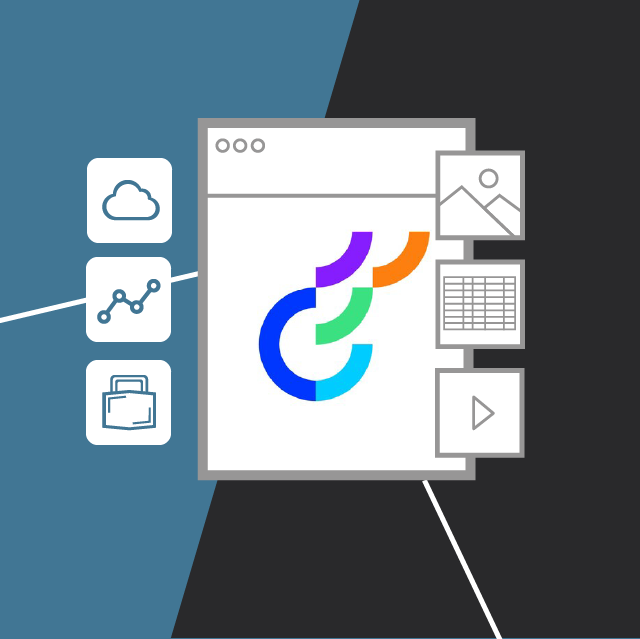Blogging Content Strategy: Tips and Tricks to Keep You On Track
Katelyn Ahern Digital Project Manager#Digital Marketing, #Inbound Marketing, #Blogging

Every business blog needs a content strategy in place. If you've hit a wall in your content creation, fear not, use these tips to revitalize your strategy.
Clearly Define Value
For every single blog post, you should be clearly defining the value of the content for your visitors. That is, what problems do your visitors have that this content can help them to solve? Does this blog just simply educate your visitors on your services? There must be a clearly defined goal for each blog post before it hits your readers’ screens. This strategy may seem tedious at first, but is extremely helpful in keeping your overall goals on track and ultimately providing a valuable space for your visitors to gain the knowledge they are looking for. Maintaining a clear purpose in each blog post will keep your readers coming back for more, and without considering this, your content can very easily get off track and start losing impact.
SEO
We have all heard about the importance of search engine optimization (SEO) and making sure that your page ranks highly when topics are being searched for using search engines like Google or Bing. One of the great things about creating a company blog is that you are (hopefully) always creating new content that will rank in search engines. While you are putting in the effort to consistently publish quality writing, it’s worth it to take the extra time to optimize your content for searches. First and foremost, you must identify long-tail keywords that you want to optimize your quality content for. Once you have your long-tail keywords picked out, they should be included in your page title, the URL of your blog post, and somewhere within the blog. Having the keywords present in the page title and, more specifically, as an h1 tag, will help search engines define what the blog is about. Since the context of the content is very important to rankings, the more the search engines understand about it, the better chances you’ll have for ranking highly.
Killer Titles
Titles are important not only for SEO purposes, but also to make sure your readers are drawn to your content. A blog, eBook, or Webinar title is the first impression for your visitors and a huge factor in whether or not they will actually want to consume your content. Great content without a strong title can go unnoticed very easily. Make sure your titles are 70 characters or less, so they do not get cut off in search engines. Also, focus on using your keyword in the title, so the readers know what they are going to be reading about. This will increase your chances of ranking for your keyword as well.
Content Format Variety
Along with defining the value of your content, it is important to provide some variety. You might publish to your blog on a regular basis, but the last thing you want is a format that is stale and predictable. Varying the style and format of your content allows you to keep visitors coming back with the thought of “I wonder what they’ll think of next.” You could try publishing posts using Q&A format, commentary format, or top 10 listings, as well as including graphics to further explain your topic. There are lots of ways to keep the content format exciting, and this is vital in order to keep your visitors excited too. If you would like some more ideas on different types of blog posts, don’t hesitate to comment or call us and we can chat about it more.
Company Culture of Blogging
Getting your company on board with your business blog is a powerful asset. Implementing this strategy and educating all Diagram employees on why we would be starting a company blog (and asking them to participate) was a huge kick-start for our blogging culture. This may seem like a hard task to accomplish, but from our experience, when everyone is on the same page, it is well worth the up front work. We have seen benefits not only on our blog but also within the company from implementing this culture at Diagram. To learn more about how we got everyone on board, see “Creating a Company Culture of Blogging”.
These are just a few tips and tricks to make sure your content stays on track. Make sure you plan ahead and align your keywords and topics accordingly. Don’t forget to use the Diagram Blogging Checklist before you publish your next blog. Do you have other tips for keeping your content focused? Feel free to share them with us in the comments below.
Related Posts

Transforming Content Management for Marketers with Optimizely SaaS CMS
Transform your digital strategy with Optimizely SaaS CMS. Discover unmatched flexibility, efficiency, and innovation for superior content management.

Cloud CMS Migration: Costs, Benefits & Insights
Migrating to a cloud CMS platform represents a strategic (and necessary) investment in the future of digital content management. Here's what you need to know.
Results Matter.
We design creative digital solutions that grow your business, strengthen your brand and engage your audience. Our team blends creativity with insights, analytics and technology to deliver beauty, function, accessibility and most of all, ROI. Do you have a project you want to discuss?
Like what you read?
Subscribe to our blog "Diagram Views" for the latest trends in web design, inbound marketing and mobile strategy.
